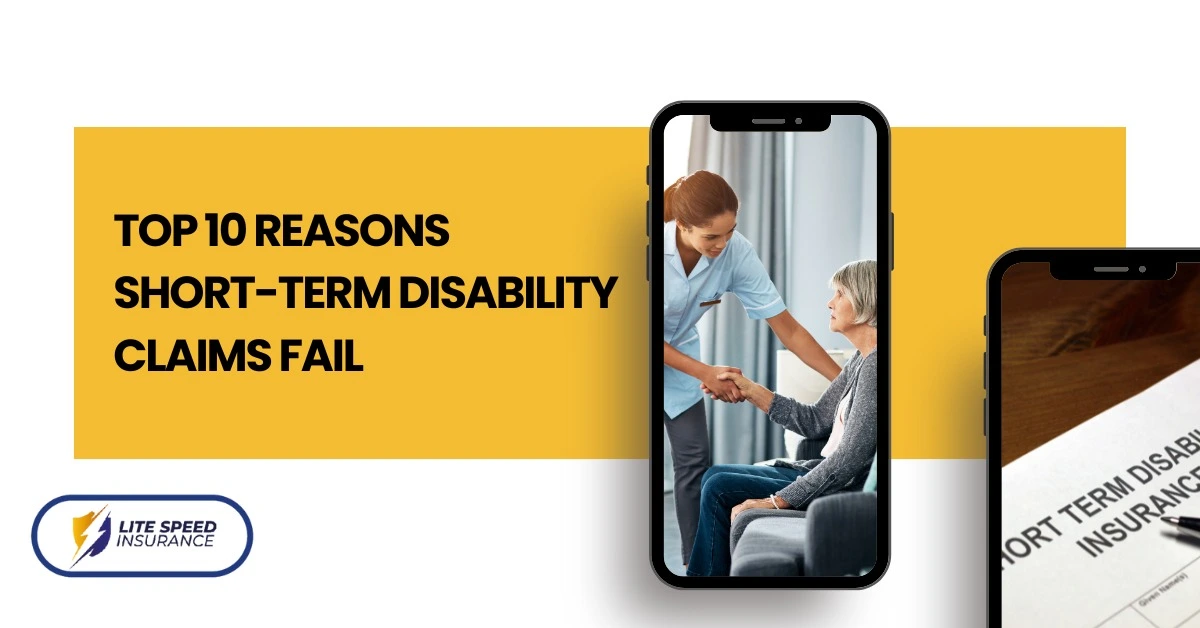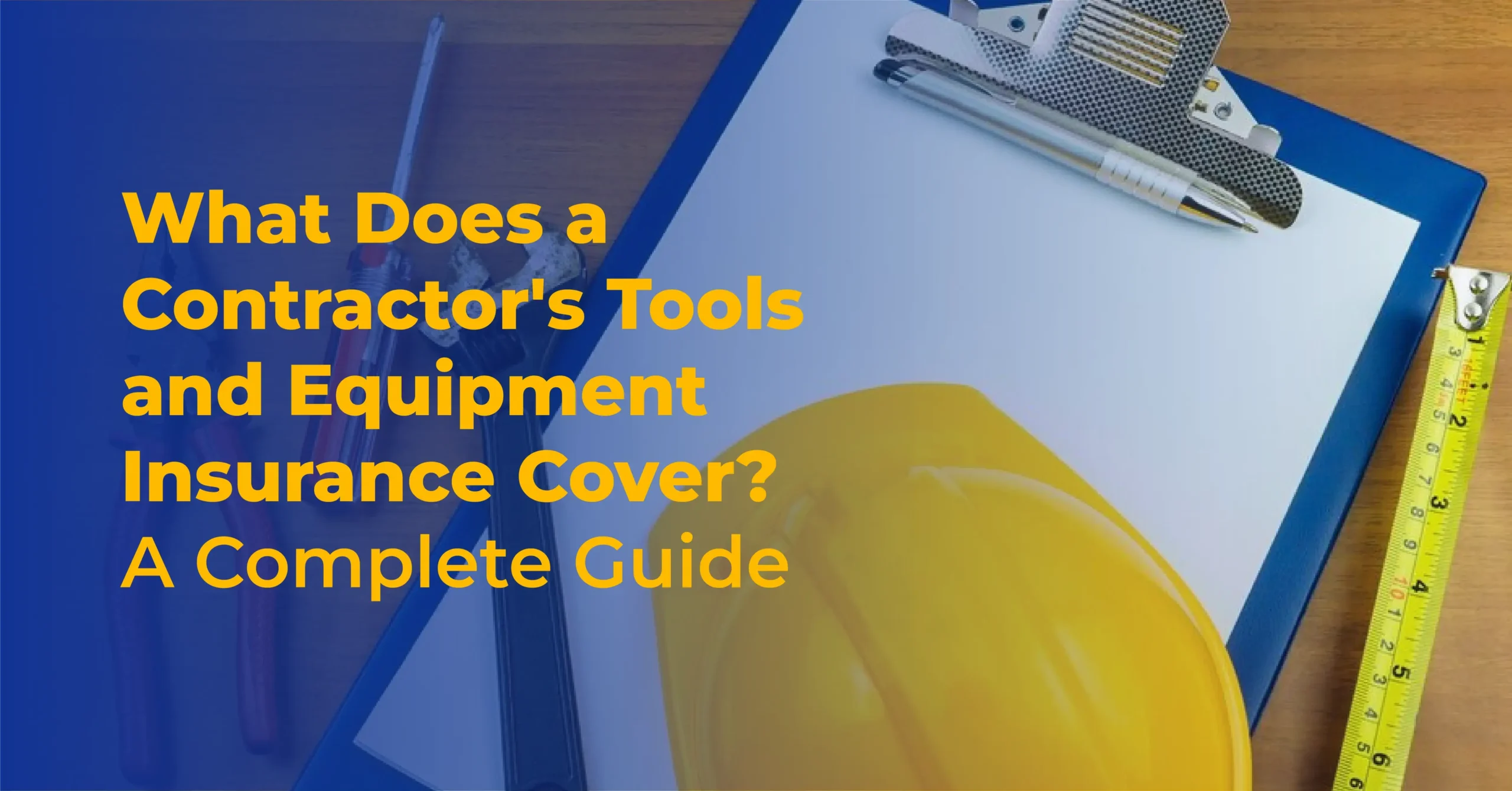Understanding Short Term Disability and its most frequent reasons for denial are some of the most critical things to know if you are counting on it as your fallback plan. Short-term disability insurance pays a necessary income protection income if you are temporarily unable to work due to illness or injury. Only some claims are approved, and an interested party should understand the reasons behind the denial. In this piece, we will learn about reasons for short-term disability denial and what to do next if a claim is denied. Don’t worry; you won’t have to figure it out alone, as LiteSpeed Insurance will walk you through the process and ensure you secure the benefits you deserve. Keep reading, and stay informed to protect your rights and income.
What is Short-Term Disability?
Short-term disability insurance is a financial safety net for your income should you be unable to work on a short-term basis for a qualifying medical condition. It is a partial salary replacement when you cannot work due to a medical condition. It is a crucial insurance type for providing financial stability during challenging times when health issues prevent you from earning an income. This type of coverage usually lasts for a few weeks to several months, depending on the specifics of the policy.
How Does Short-Term Disability Insurance Work?
Qualifying for Coverage
Your insurance company will provide your policy, outlining the criteria for short-term disability benefits. Often, this includes a specific type of employment status and being employed for a certain time frame before a disability occurs. The amount of income replacement and the length of time benefits are paid are policy specifics and will vary widely.

How to File a Claim
In most cases, you’ll file a claim for short-term disability by providing medical proof of your disability and completing a claim form. Filling out such forms correctly and including all the proper medical documentation is essential to ensure you don’t experience any delays or get denied.
The Waiting Period
In short-term disability insurance, the elimination period, also known as the waiting period, is when an injury or illness starts and benefits start getting paid. Usually, the waiting period can last several days and a few weeks.
Benefit Period
A period within which payments are made after the waiting period has expired is termed the benefit period. In many cases, short-term disability plans offer benefits that extend for months to one year.
No-Fault Car Damage: Who Pays? | LiteSpeed Insurance
Return-to-Work Rules
Policies may also include provisions regarding returning to work, sometimes providing incentives for those who return to light-duty or part-time jobs as they recover. Knowing those rules can help you plan your financial future better and ensure the continuity of benefit coverage.
10 Reasons Short-Term Disability Can Be Denied

Navigating through the ins and outs of short-term disability claims can be somewhat overwhelming. Knowing the top 10 reasons claims are denied will help you prepare adequately and tilt the odds hopefully in your favor towards getting the approval you deserve. Here are the ten common reasons why:
Medical Insufficiency
Most claims are denied due to insufficient medical proof to validate the disability claim. Your doctor must provide comprehensive documentation on your condition and how it affects your ability to work.
Not Meeting Eligibility Requirements
All policies have defined eligibility terms regarding minimum work hours, length of work, etc. Your claim may only be accepted if you meet the policy stipulations. Please ascertain the terms of your policy before you make a claim.
Pre-existing Conditions
Suppose the disability should result from your pre-existing condition before buying the insurance. In that case, your claim may be denied, especially if the condition was diagnosed within a specific time frame before the commencement of the coverage.
Failure to Comply with Treatment
Insurers often require you to follow specified treatments to claim benefits. Failure to comply with treatment can result in your claim being denied. It indicates that your condition is likely to be controlled or eliminated.
Missing or Incomplete Information
A claim may be delayed or denied if the application or medical forms are incomplete. Please be sure to check your entries for both correctness and completion to avoid any avoidable delays.
Disability not accounted
Sometimes, your claim might be denied because the insurer deems that your condition does not significantly interfere with your ability to work. Having clear evidence from your doctors on how your condition affects your ability to work goes a long way.
Fraud claims
Any deception or misrepresentation in your claim may lead to rejection and possibly legal action. The truth is paramount in providing information on your condition and history.
Failure to Cooperate
Most insurers will request more information or documentation during a claim. Failure to provide an adequate and timely response can lead to a claim denial due to non-cooperation.
Excluded Conditions
Some policies may only cover certain conditions if they are not explicitly stated in your policy. Standard exclusions include injury from acts of war and self-inflicted injuries, among others. It would help if you always understood what is covered and excluded under your policy.
Inconsistent information
Minor inconsistencies between your claim form, medical records, and other documents can warrant a claim denial. Therefore, there is a need for utmost consistency in documentation and claims on your part.
Your Short-Term Disability Claim Was Denied – What Now?

If you get a denial to your short-term disability application, do not get discouraged. There are a few steps you may take to contest the denial and potentially overturn the determination:
Review the Denial Letter
Begin by reading the denial letter carefully to comprehend the detailed reasons that could have led to the denial of your claim. This will be the document you use to guide all of your decisions and, in addition, is required for any appeal.
Gather Additional Information
Assemble any other medical evidence or documentation that may be helpful to your claim. This may include further letters from your doctor giving more details on your condition, results of any test conducted, or information about the treatment provided.
Talk to the Insurer
You should immediately contact your insurance company to clarify anything that might be a misunderstanding or to submit additional information that may be required. This simple step can resolve an issue without needing a formal appeal.
Appeal Online
Appeal to your insurance carrier if you have been denied, if this is allowable in your policy, in which case, the guidelines of timing and other requirements indicated in the policy or the letter denying the claim should be strictly followed.
Reach for Legal Counseling
You may want to consult an attorney whose speciality is disability insurance. Legal expertise is always welcome in such issues because processes may get cumbersome.
LiteSpeed Insurance Consultation
Learning that your short-term disability claim has been denied can be a lot to take in, but you don’t have to do it alone. LiteSpeed Insurance provides expert consultation and can help you through the claim process or appeal. Be sure you receive the support and benefits you are entitled to.
Conclusion
Understanding the reasons for disallowing a short-term disability claim will enable you to work well with your rights and benefits. You can be proactive and prepared well to enhance the chances for approval. Remember: LiteSpeed Insurance is here to walk you through this process. For more details or customized support, feel free to contact us.




